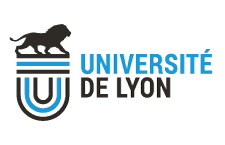Nanomagnetism and Spintronics
Nanomagnetism and Spintronics (UE S3-10)
The aim of this course is to convey adequate knowledge of magnetism in solids so that magnetic nanostructures can be understood. The specific properties of such nanostructers arise from their large surface-to-volume ratio: increase of the magnetic moment per atom, increase and modification of the anisotropy, reversal of non-conventional magnetic moments, etc. An understanding of these phenomena requires the introduction of new magnetic states and novel models.
We will furthermore discuss dedicated analysis techniques for the variety of nanomagnetic materials that can be fabricated, which have to deal with the small size and quantity of the material, and the possible applications of magnetic nanostructures.
We will furthermore discuss dedicated analysis techniques for the variety of nanomagnetic materials that can be fabricated, which have to deal with the small size and quantity of the material, and the possible applications of magnetic nanostructures.
Outline of the course
- Introduction
- Recapitulation: basic magnetic systems
- Measuring magnetism
- Magnetic phenomena and simple experiments
- Sensitive measurements with SQUIDs (superconducting quantum interference devices)
- Magnetism of free ions
- Orbital magnetic moment and electron spin in atoms and ions
- Hund's rules and the Landé factor
- Pauli para- and diamagnetism
- Landau diamagnetism
- Magnetism in solids
- Blockade of orbital momentum, crystal fields, molecular fields
- The model of localized electrons
- The Stoner-Wohlfarth model
- Exchange interactions: direct, Ruderman-Kittel-Kasuya-Yosida (RKKY), super exchange
- Magnetocrystalline anisotropy
- Magnetic order: ferromagnetic, antiferromagnetic, spin glasses
- The model of itinerant electrons, Stoner criterion
- Magnetism of nano-objects
- Zero-dimensional nano-objects: superparamagnetism
- One-dimensional nano-objects: nanowires, the Ising model
- Two-dimensional nano-objects: thin magnetic films and multilayers
- The quantum Hall effect
- Gigantic magentoresistance: principle and realization
- Magnetic data storage and other applications
- Principles of storage: analog, magnetic, magneto-optic
- Storage and retrieval processes
- Applications of magnetostriction and magnetoelasticity
Evaluation
- Final written exam
- Graded oral presentation
Bibliography
- J. M. D. Coey, "Magnetism and Magnetic Materials", Cambridge University Press, Cambridge, 2010
- Stephen Blundell, "Magnetism in Condensed Matter", Oxford University Press, Oxford, 2001
- Stephen Blundell, "Magnetism: A Very Short Introduction”, Oxford University Press, Oxford, 2012
course volume
- lectures/tutorials: 20h
- seminar: 8h
- ECTS: 3



 WebAdmin
WebAdmin

